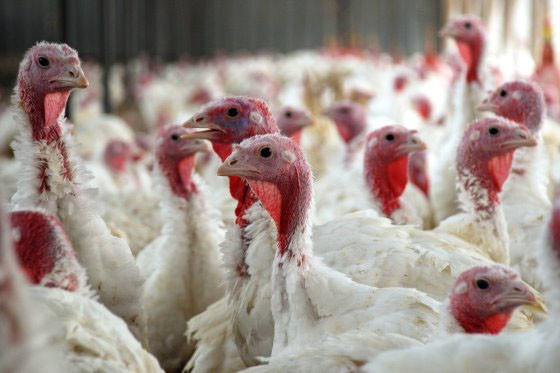Brexit drives turkey company business to Europe

Concerns about the threat of cheap imports, border controls, lack of available seasonal labour and a growing EU market has prompted Kelly Turkeys to move some of its business to mainland Europe.
Kelly Turkeys is looking to move part of its breeding stock and hatching egg production from Ayrshire, Scotland to either the Netherlands or Germany in the light of fears around repercussions stemming from Brexit.
Owner Paul Kelly told Poultry World/Farmers Weekly that the company was looking to move about 5% of its total breeding stock of 42,000 birds. The remaining breeding stock, including grandparent stock and pure lines, will remain in the UK.
Mr Kelly confirmed the company was looking for two farms of 1,000 square metres in either the Netherlands or Germany. Its partner company Freiland Puten has farms in Germany and Austria, and also retails in Switzerland and its €29m (£26m) organic business saw double digit growth last year.
However, he is deeply concerned about the threats posed by Brexit: “It’s really difficult to see any benefits for the industry from Brexit other than a small reduction in bureaucracy.
“But the downside is huge. If we experience a no tariff regime for US and Brazilian imports, it will basically be game over unless the consumer is prepared to pay a huge price difference to buy British.
“And there is no evidence that – other than a small segment of the population – that they are prepared to do this,” he said, pointing to the growing amount of meat already coming in from Poland the Ukraine.
Labour
He is also concerned about operating outside of a customs union with the EU, saying it would be a disaster and is worried about the future of seasonal and full-time labour coming in from Europe post-Brexit. Without their input, he believes the industry will grind to a halt.
Kelly Turkeys, which sells its characteristic bronze turkeys under the brand name KellyBronze, supplies about 27% of the fresh Christmas turkey market. Total production of the company amounts to 2.2m poults a year and 95% of those hatch during the peak period from May through to September.
The seasonal nature of the business means that at Christmas 90% of its workers are EU nationals, while in the summer, when the company is producing hatching eggs and poults, this falls to around six in ten workers.












